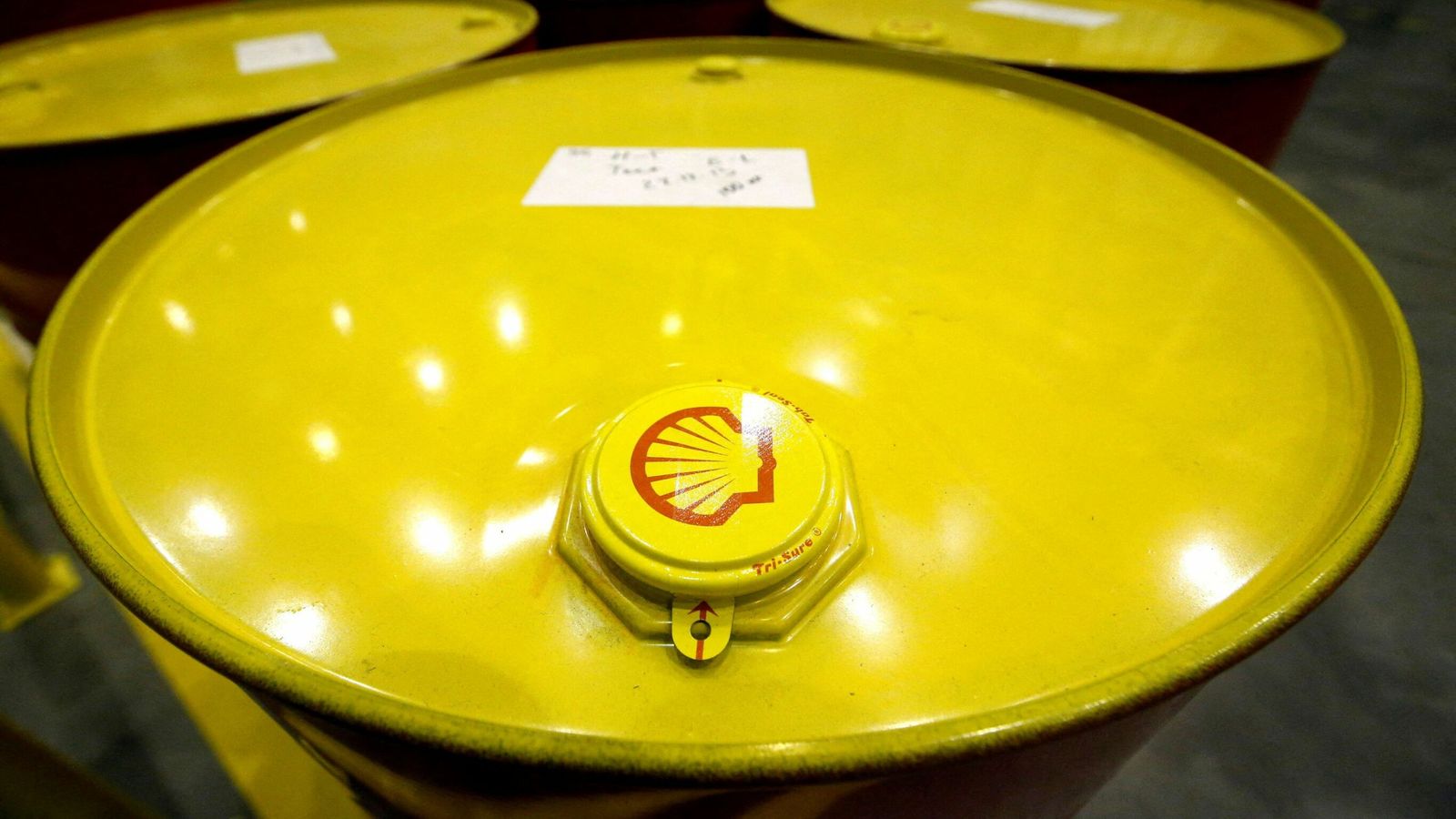Shell has attracted a backlash after revealing an increase in shareholder rewards on the back of a rise in quarterly profits.
The oil and gas major, which is currently the most valuable constituent of the FTSE 100 share index, said adjusted profits came in at $6.2bn (£5.1bn) during the three months to the end of September.
That was up from the $5bn it had reported for the second quarter of its financial year but below the $9.45bn achieved in the same period last year when gas and oil prices were elevated by the immediate effects of Russia’s invasion of Ukraine.
Profits were in line with market expectations.
Shell cited a boost to earnings from higher oil prices, refining margins and strong liquefied natural gas (LNG) trading.
The latter has been aided by the continued lack of Russian supply to the natural gas market.
Oil prices have climbed substantially since the end of June, with Brent crude surging from just above $70 to almost $100 at one stage amid production cuts by major oil producing nations Saudi Arabia and Russia.
The Israel-Hamas war has raised volatility though the price on Thursday stood at $85.
Shell said that while it would keep its dividend unchanged at $0.331 per share, it was to raise awards via share buybacks.
Please use Chrome browser for a more accessible video player
They would total, the company said, $3.5bn over the next three months.
It completed a $2.7bn buyback in the previous three months.
Shell declared that the latest announcement would take its total distributions for 2023 to $23bn.
Chief executive Wael Sawan said: “Shell delivered another quarter of strong operational and financial performance, capturing opportunities in volatile commodity markets.
“We continue to simplify our portfolio while delivering more value with less emissions,” he concluded.
Shell’s profit numbers attracted similar criticism to that which was aimed at its UK-based rival, BP, earlier in the week.
Be the first to get Breaking News
Install the Sky News app for free
Oil and gas majors face continued pressure from climate campaigners and consumer groups alike as they are accused of being too slow to transition towards net zero emissions while households face elevated energy bills for a second winter in a row.
Jonathan Noronha-Gant, senior campaigner at climate justice group Global Witness, said of the performance: “Shell’s shareholders remain some of the biggest winners of Russia’s brutal war in Ukraine and ongoing global instability.
“The turmoil in fossil fuel markets allows Shell to rake in enormous profits – but instead of investing in clean energy, the company has doubled down on oil, gas, and shareholder pay-outs.”








